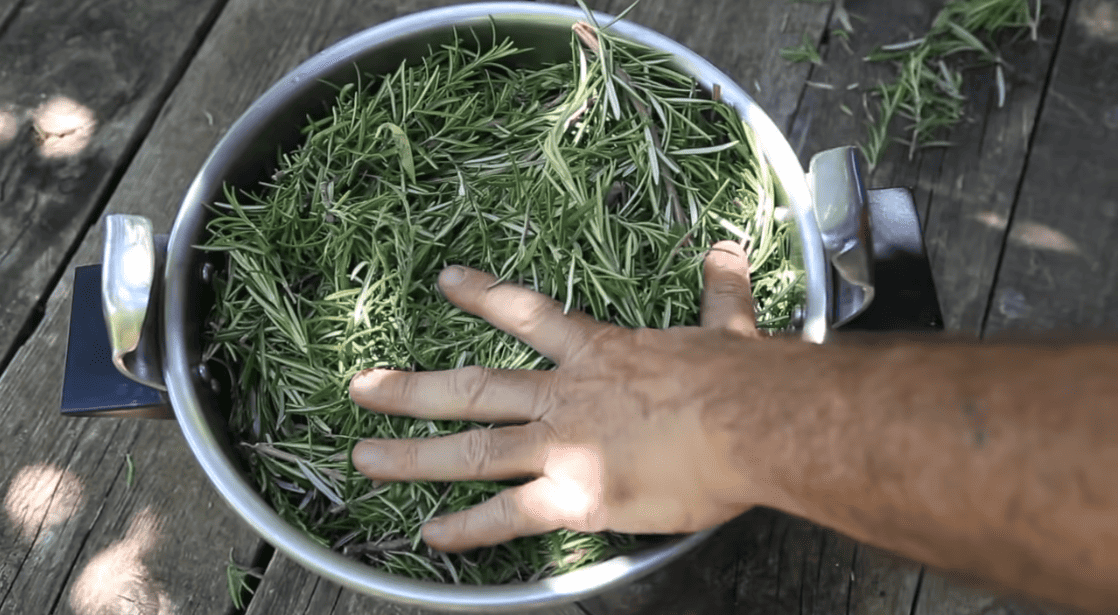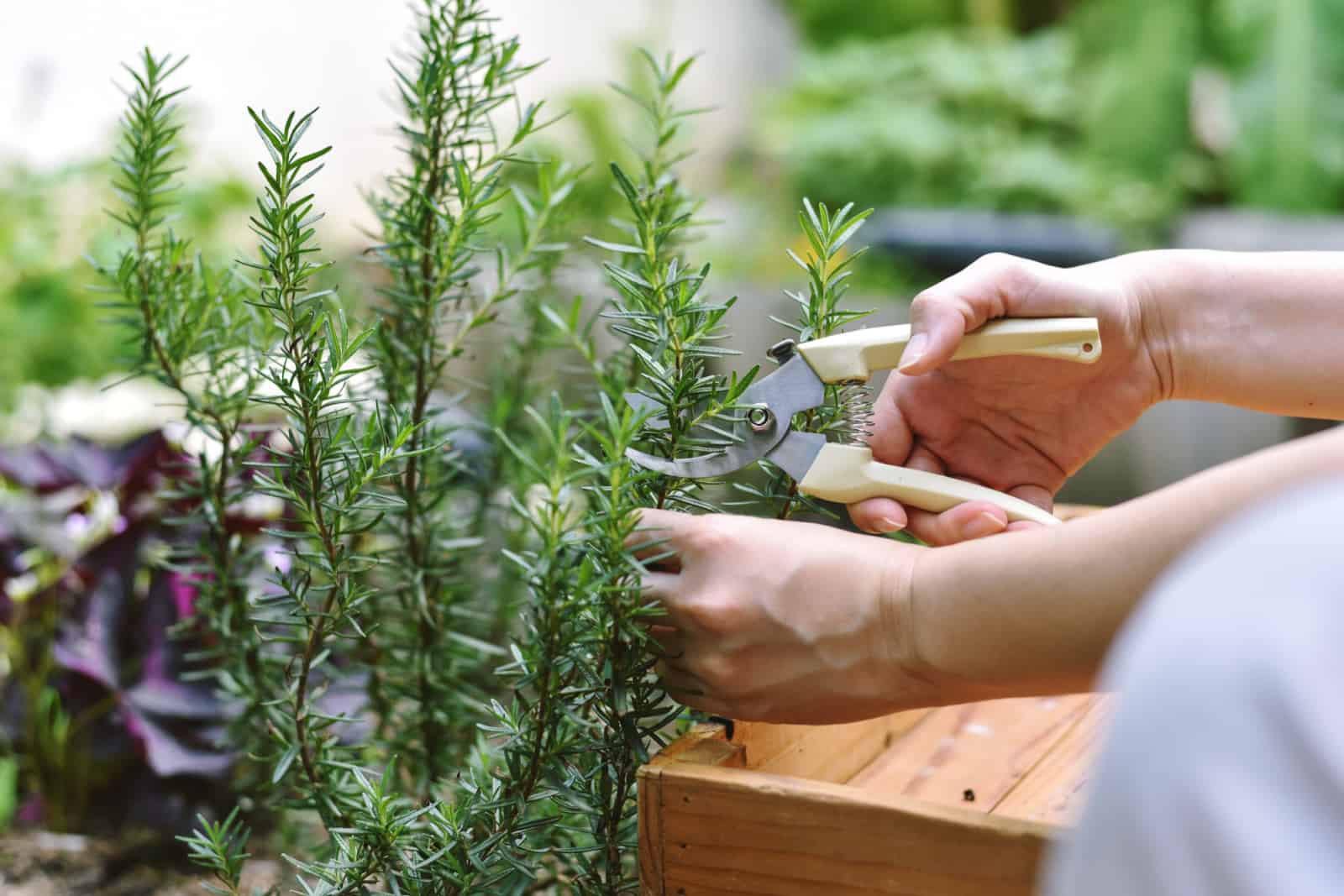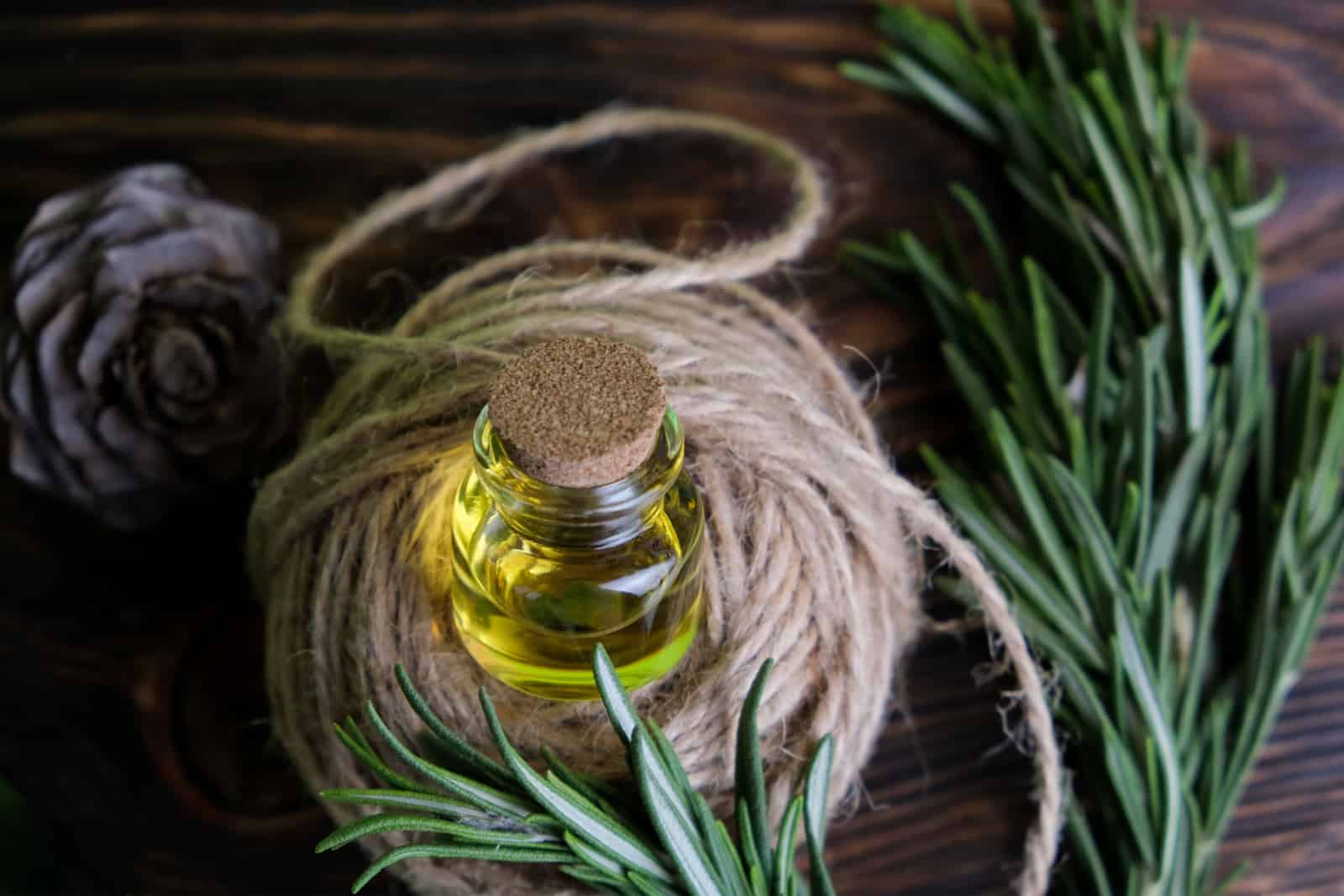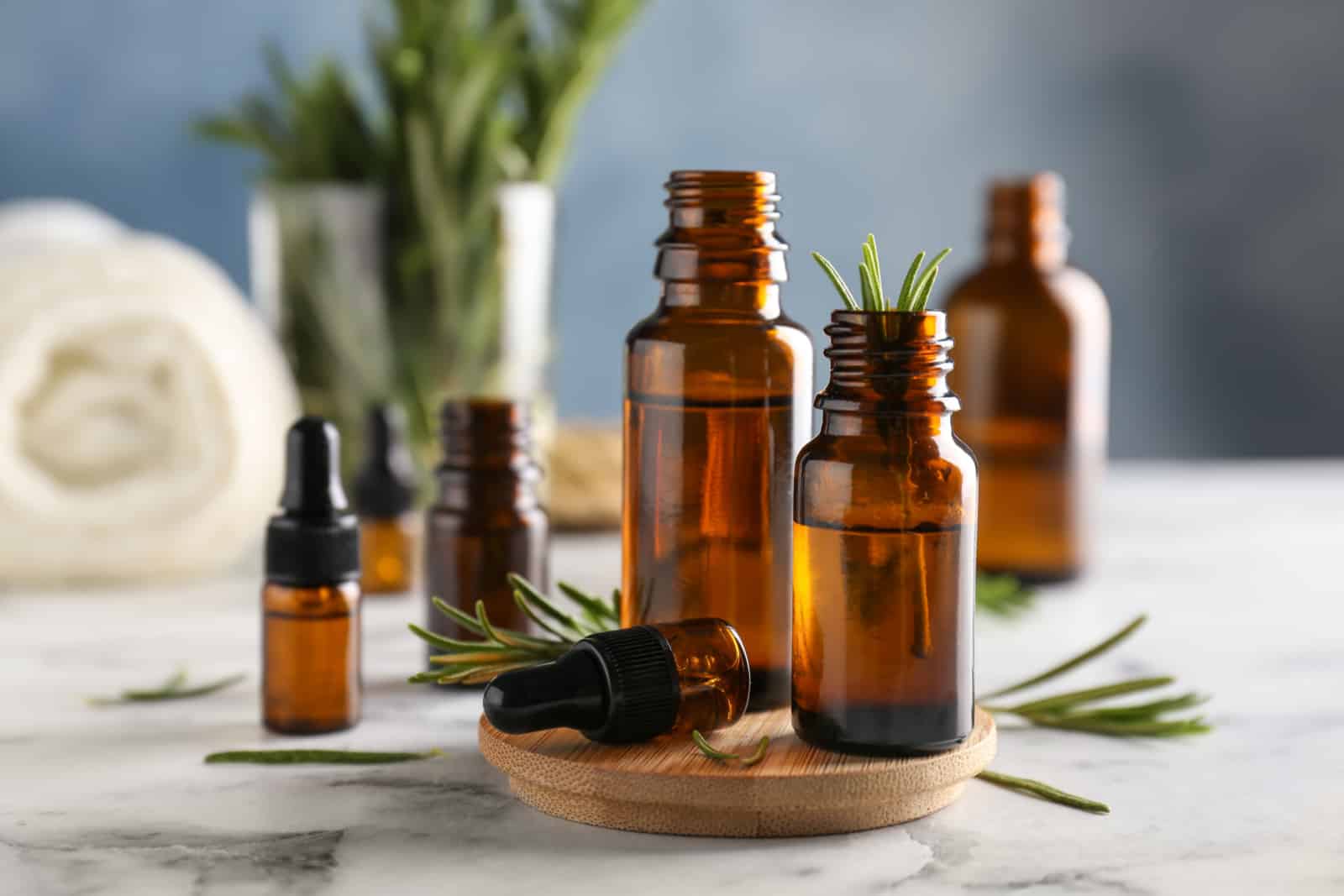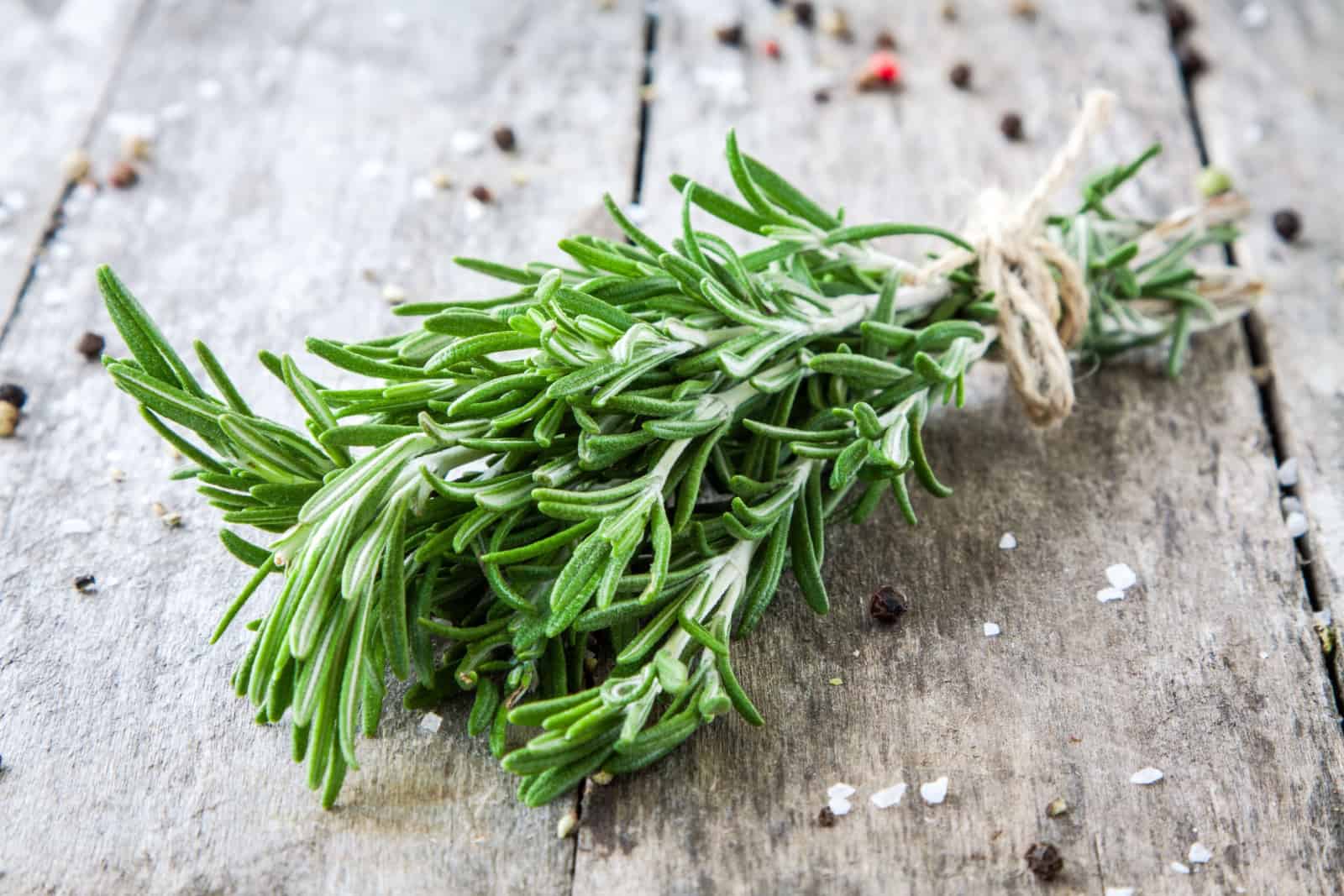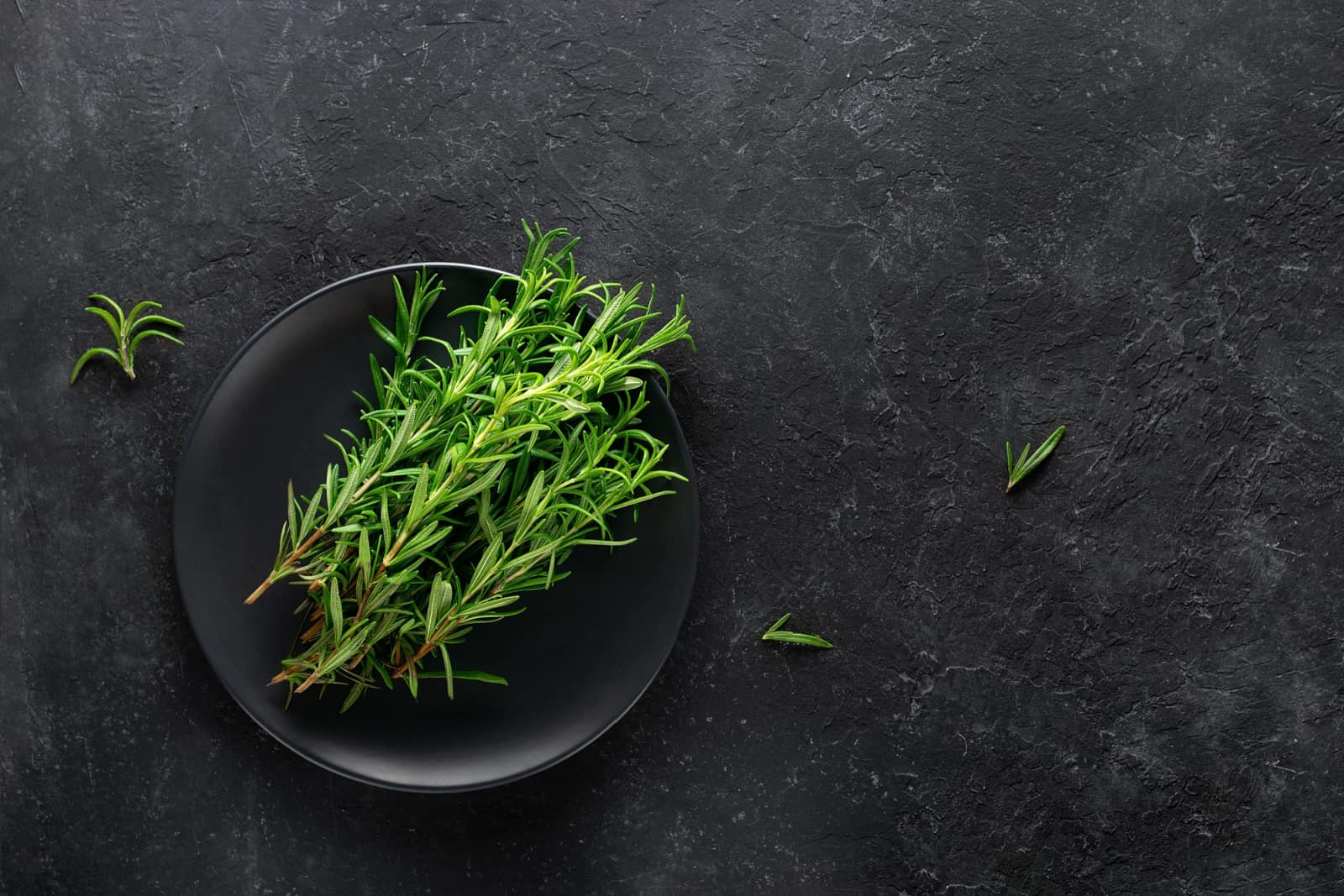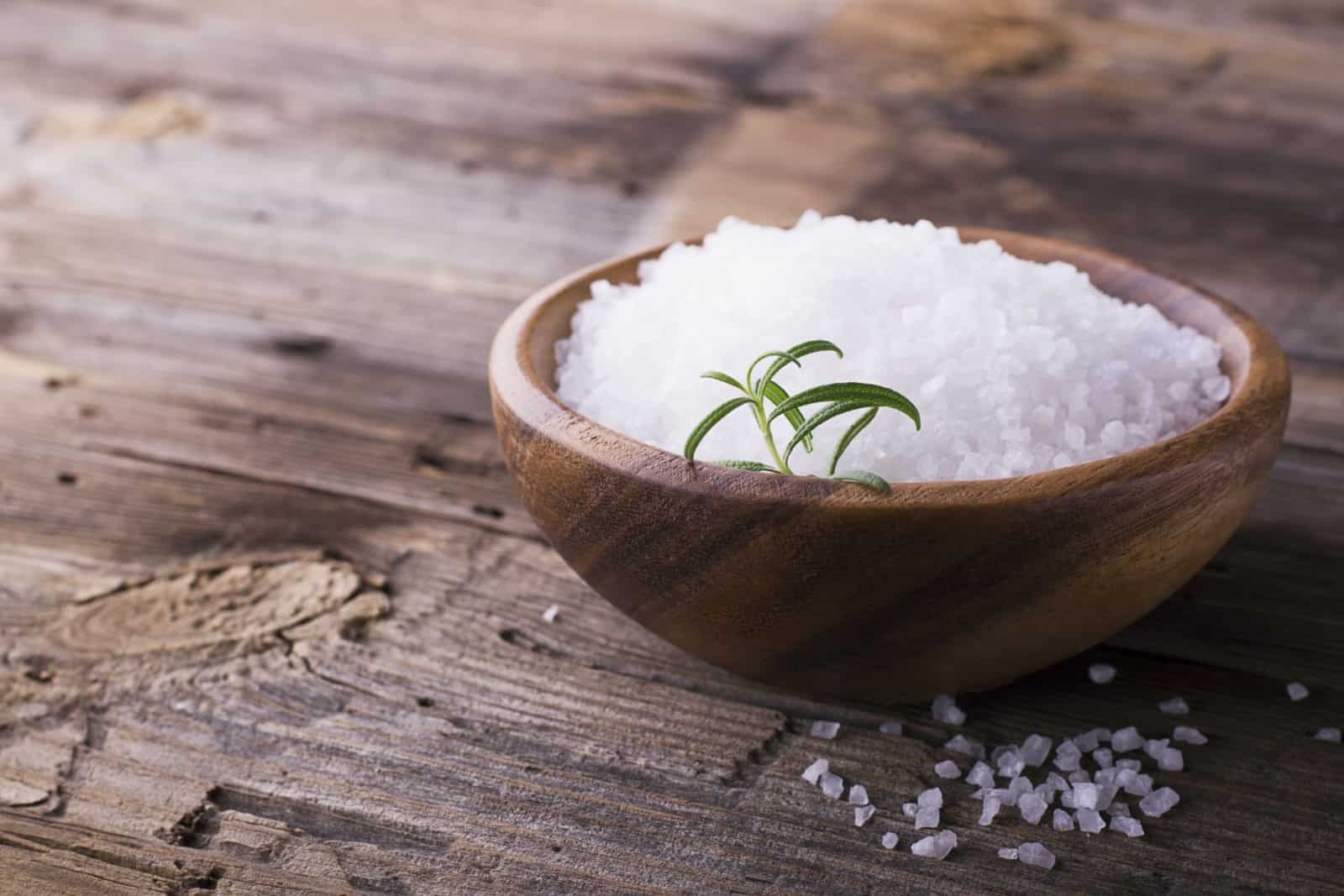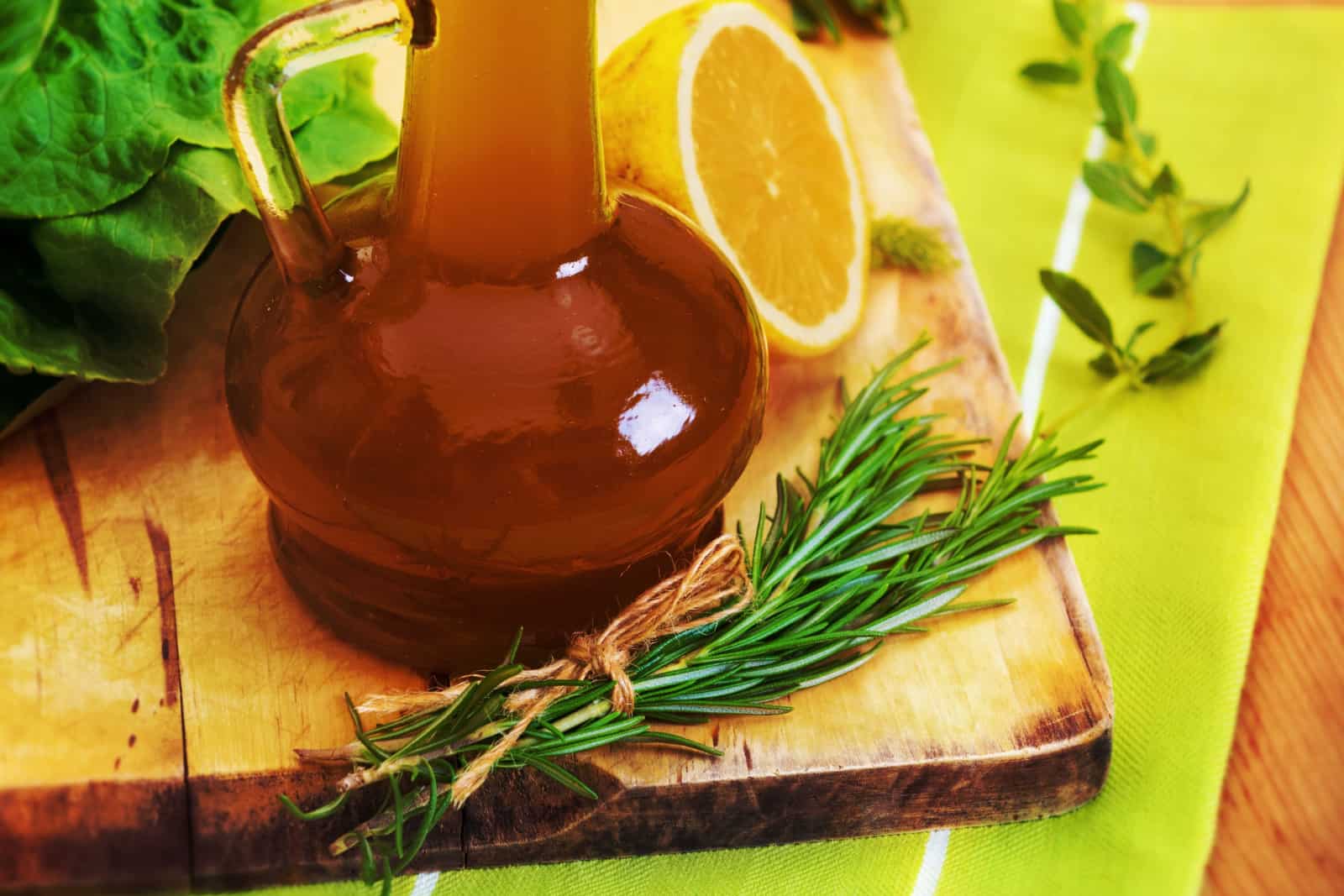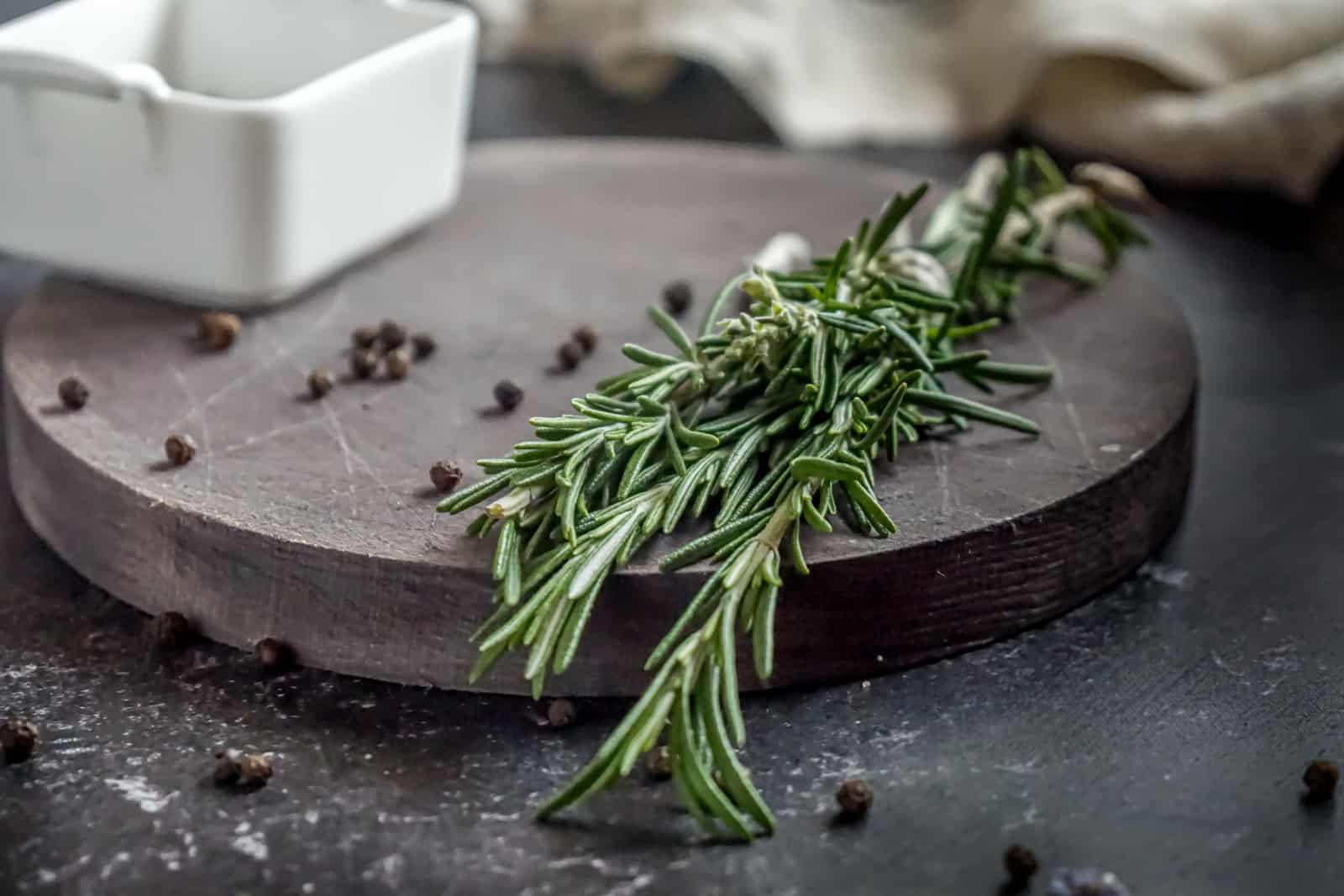If you don’t already have rosemary in your backyard, its numerous health, cooking, and garden uses will make you change your mind.
This magical herb can do so much for you, from infusing your oils and making every dish taste as if it were made in a five-star restaurant to keeping you healthy and deterring pests.
Let’s discover its other uses and benefits!
Harvesting And Preparing Rosemary
Before you can use rosemary in your favorite recipes, you first have to harvest it. You can do that any time of the day. Snip off the top 2-3 inches in spring and use it as you wish.
And if you know how to prune rosemary properly, you’ll promote its vigorous growth, health, and have more harvesting material.
Remember that rosemary isn’t a fan of heavy pruning, so you shouldn’t remove more than a quarter or a third of the entire plant when trimming it. But even this quantity will give you more than enough material to work with.
You can use this herb immediately after harvesting or you can let it dry. Tie the stems in a bundle, hang them upside down, and leave them in a warm spot for about 10-14 days.
Separate the leaves and stems after drying, and store the fragrant foliage in an air-tight container.
Note: Don’t throw away the dry stems; add them to your compost pile!
Rosemary As Medicine
Like many herbs, rosemary is an alternative to conventional medicine when it comes to certain ailments, such as weak hair, nasal congestion, etc.
Here’s how to reap its benefits.
1. Make Rosemary Essential Oil
One of the benefits of growing rosemary is being able to make your own essential oil that you can use to relieve stress and muscle pain, reduce anxiety, indigestion, etc. (1)
And the best part is that you can make your essential oil by infusing olive or jojoba oil with rosemary. You can heat up the oil and the herb up to 180°F or mix it together and leave it in a sunny location for a couple of weeks.
This product is less potent than the actual essential oil you get from distillation. It is a more complex process, but here are the steps if you want to try it out:
2. Or Natural Deodorant
I’ve frequently stumbled upon claims that consuming more aromatic herbs, such as rosemary, mint, basil, etc., can reduce body odor because they are rich in antioxidants.
But there isn’t enough research to support this claim.
Luckily, you don’t have to rely on their consumption. You can make your own deodorant by mixing some coconut oil, starch, baking soda, and a couple of drops of rosemary essential oil.
3. Use It To Get Strong And Shiny Hair
Believe it or not, rosemary can encourage hair growth in people suffering from androgenic alopecia as effectively as minoxidil, one of the most common treatments. (2)
Therefore, you can use it to encourage hair growth and health if you use it regularly.
You can use rosemary oil before washing your hair or spray rosemary water every 2-3 days for normal hair and every day for dry hair.
4. Rosemary Can Treat Nasal Congestion
An age-old steam remedy is a fool-proof way of battling nasal congestion. Add a couple of drops of rosemary oil to it, and you’ll get instant relief.
The best thing about this method is that it works fast and is completely safe, so you won’t have to worry about any side effects.
Boil water, pour it into a heat proof container, and add a couple drops of rosemary essential oil or dried or fresh rosemary. Researchers describe this herb as having anti-inflammatory properties, so it can bring relief to your swollen sinuses. (3)
After you prepare the steamer, all you need is to put a towel over your head to keep the steam in and breathe in the vapors.
5. It Can Improve Cognitive Performance
According to research, inhaling rosemary essential oils can have positive effects on mental clarity, cognition, and subjective state. (4)
Another study conducted on animals suggests that rosemary can improve memory, but more research is needed because there are different aspects of memory, the method affects different age groups differently, etc. (5)
6. Use It For Natural Pain Relief
Since rosemary has anti-inflammatory and pain-relieving properties, you can use it to relieve neuropathic and muscle pain among other things. (6)
And if you apply it on your skin, it can help with eczema, joint and muscle pain, headaches, gout, etc.
7. It Helps With Stress And Anxiety
Next time you’re feeling anxious, stressed out, and overwhelmed, head to your trailing rosemary and breathe its fragrance in.
It reduces cortisol levels and can help lower anxiety and depression. (7)
Therefore, sniffing rosemary-filled sachets, smelling the tea, breathing in rosemary-infused steam, adding stems to your bath, or simply smelling your plant can put you in a calmer state.
8. Rosemary Is Great For Oral Health
Rosemary has antimicrobial properties, which means it can kill bacteria inside your mouth responsible for tooth decay, cavities, and bad breath.
You can make a rosemary mouthwash by boiling 2 cups of water, letting it cool for about 30 seconds, and pouring it over 2 tablespoons of rosemary. Cover the solution immediately, let it infuse for about half an hour, and strain it afterwards.
Or you can replace peppermint oil with rosemary when making a homemade toothpaste.
9. And Skin Health
Since rosemary oil has antimicrobial and anti-inflammatory properties, you can use it on your skin to treat acne and eczema.
It promotes healthy skin, nourishes it, and can even speed up wound and bruise healing.
Using Rosemary As Food
A little rosemary goes a long way because of its strong aroma. Add it to your favorite meals, salads, and snacks to bring out an explosion of flavor.
1. With Vinegar And Oil
You can easily preserve the rosemary aroma and create a unique flavor by infusing vinegar or oil with it. And the best part is that you don’t need any special equipment to do that.
Lavender and rosemary vinegar is a delicious salad dressing, but you can also use it as a part of your skin-care routine or for cleaning!
Here’s how to make it:
And if you want a fragrant olive oil, all you’ve got to do is add it to your saucepan together with rosemary, heat it up to about 180°F, and simmer it for about five minutes.
Afterwards, you’ll get oil for focaccia or salads. Or you can give both infusions to your friends and family.
2. Making Compound Butter
Another popular way of using rosemary is making compound butters. There are many recipes out there, but mixing it with thyme, pepper, and butter is my all-time favorite.
Once you mix the ingredients, refrigerate the butter and use it for steaks or some other meal you have in mind. You can also add garlic since that’s one of the most popular ingredients in compound butter.
3. For Rosemary Salt
If you want to take your fish or vegetable dishes to a whole new level, a little sprinkle of rosemary salt can work miracles.
And to make your own, mix a cup of kosher salt, a couple of smashed garlic cloves, 14 rosemary stems (strip the leaves), 8 sage stems, and some lemon zest. Mix it all in a food processor and blender, and you’ll have a unique condiment in the blink of an eye.
Put it in an airtight container and store it in the refrigerator, where it can last for months.
4. Adding It To Sauces And Soups
Sauces and soups are meant to be aromatic, and that’s where rosemary comes into play.
Pair rosemary with citruses, garlic, olive oil, balsamic vinegar, butter, or port for marinades.
And if you’re looking for the perfect vegetable soup combination, try zucchini, sweet and classic potato, parsnips, chicken, fish, chickpeas, etc.
5. Salads And Dressings
Rosemary isn’t a traditional herb you’d add to a salad, but it works wonders in tomato, Italian potato, and grape and feta cheese salads.
Many recipes call for rosemary vinaigrette, such as grilled peach or prosciutto salad to name a few.
6. Using It With Pasta And Bread
You can give so much flavor to plain pastas and breads by serving them with some rosemary infused olive oil on the side.
But don’t stop there! Mix some rosemary into the dough before baking, and you’ll get the tastiest focaccia and fettuccine.
7. Adding Rosemary To Deserts
It might sound a bit strange at first, but you can add herbs to deserts to add more depth and flavor.
Lemon and rosemary sorbet, citrus rosemary upside-down cakes, and the famous Madeira cake are living proof of that.
8. And Drinks
Rosemary is a perfect addition to summer drinks, whether you’re looking for a cocktail or a simple detox water.
Infuse your water with grapefruit pieces and rosemary or go for something stronger, such as a bourbon lemon rosemary or rosemary gin fizz cocktail.
9. Working With Rosemary In General Cooking
The numerous rosemary kitchen applications don’t end here. You can add this herb to almost any dish, from quiche and chilli con carne to stews and roasts.
Experiment with it and find the combinations you like. My favorite is tuna pasta with a sprinkle of rosemary and basil.
Other Uses
Rosemary makes for an excellent addition to your home due to its pleasant aroma and its numerous medicinal properties.
Here are some ways you can use it if all the other ways fail.
1. In Simmer Pots
Making simmer pots is one of the easiest (and healthiest) ways to get your home to smell incredible.
Simply add various herbs, citruses, and spices to the saucepan, fill it with water, and let it boil.
Let the pot simmer, replenish water as it evaporates, and the fragrance will soon infuse your entire home.
Here are some popular combinations:
• Orange, cranberries, cinnamon, and rosemary
• Orange, juniper, and rosemary
• Lavender, eucalyptus, and rosemary
• Sliced lemon, vanilla extract, cinnamon, and rosemary
2. As A Pest Deterrent
Rosemary is a powerful herb that can keep pests at bay because of its smell. Companion planting is a great way of protecting your garden from harmful insects.
And if you want to keep your home pest-free, placing rosemary sprigs on windowsills and near doors should do the trick. You can also use rosemary essential oil if you don’t have an actual plant.
You can use rosemary to make a DIY mosquito deterrent. Some homeowners report that it can also repel rodents.
Experiment with these uses, find one you like the best (or combine more of them), and tell us what you think!
References:
1. Rosemary, Rosmarinus officinalis. (n.d.). Mount Sinai.
2. Panahi, Y., Taghizadeh, M. Tahmasbpour Marzony, E., Sahebkar, A. (2015). Rosemary Oil vs Minoxidil 2% for the Treatment of Androgenetic Alopecia: A Randomized Comparative Trial. SKINmed, Dermatology for the Clinician.
3. Hassani, F. V., Shirani, K., & Hosseinzadeh, H. (2016). Rosemary (Rosmarinus officinalis) as a Potential Therapeutic Plant in Metabolic Syndrome: A Review. Naunyn-Schmiedeberg’s Archives of Pharmacology.
4. Moss, M. & Oliver, L. (2012). Plasma 1,8-cineole Correlates with Cognitive Performance Following Exposure to Rosemary Essential Oil Aroma. Therapeutic Advances in Psychopharmacology.
5. Hussain, S. M., Syeda, A. F., Alshammari, M. Alnasser, S., Alenzi, N. D., Alanazi, S. T., & Nandakumar, K. (2022). Cognition Enhancing Effect of Rosemary (Rosmarinus officinalis L.) in Lab Animal Studies: A Systematic Review and Meta-analysis. Brazilian Journal of Medical and Biological Research.
6. Ghasemzadeh Rahbardar, M. & Hosseinzadeh, H. (2020). Therapeutic Effects of Rosemary (Rosmarinus officinalis L.) and its Active Constituents on Nervous System Disorders. Iranian Journal of Basic Medical Sciences.7. Sasaki, K., Ferdousi, F., Fukumitsu, S., Kuwata, H., & Isoda, H. (2021). Antidepressant- and Anxiolytic-like Activities of Rosmarinus officinalis Extract in Rodent Models: Involvement of Oxytocinergic System. Biomedicine & Pharmacotherapy.

